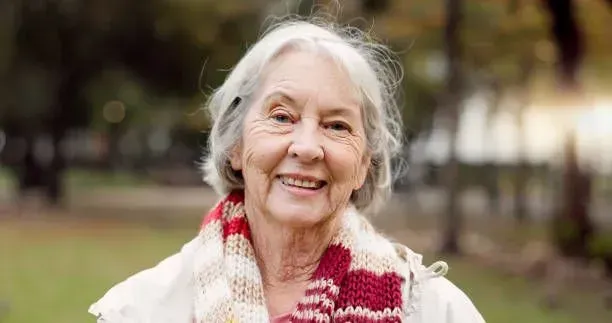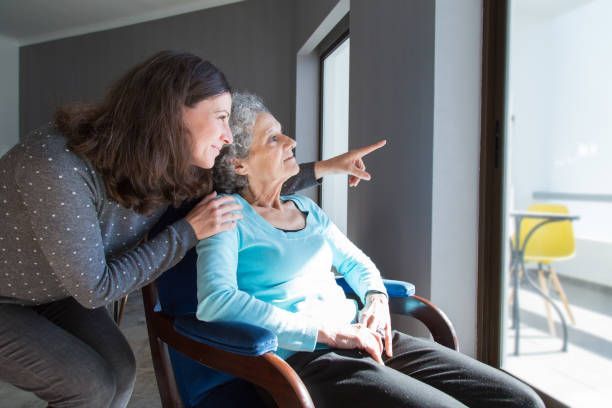What Is Incontinence Care for the Elderly?
What is Incontinence Care for the Elderly?
At 7 Day Home Care, we understand that incontinence care for the elderly can be a sensitive and challenging issue for families to manage. Many caregivers struggle with providing the necessary support while balancing other responsibilities, and the emotional toll of caring for a loved one with incontinence can be overwhelming. Incontinence may stem from various medical conditions, including age-related decline, dementia, or mobility issues, and it requires specialized, compassionate care. Our professional home health aides are trained to provide dignified, respectful incontinence care, including assistance with toileting, changing, personal hygiene, and maintaining a clean and comfortable environment. Through our tailored home care services, we alleviate the stress on families, allowing them to focus on their relationship with their loved one while ensuring that proper, attentive care is provided at all times. Our experienced caregivers prioritize the health, safety, and dignity of every client, offering families peace of mind knowing that their loved ones are well cared for.

Are You Searching for a Home Care Agency Near Me to Provide Incontinence Care for an Elderly Loved One?
As people age, many begin to experience physical changes that affect their day-to-day living. One such change that can be particularly challenging for seniors and their families is incontinence. Incontinence care is essential for the elderly, particularly for those who struggle with controlling their bladder or bowels. This comprehensive guide will cover what incontinence is, the types of incontinence, its causes, and the importance of specialized care for the elderly. At 7 Day Home Care, we offer expert incontinence care services, ensuring seniors can maintain their dignity and comfort at home.
What Is Incontinence?
Incontinence refers to the loss of bladder or bowel control, leading to involuntary leakage of urine or feces. It is a common condition among older adults, though not an inevitable part of aging. The degree of incontinence varies, from occasional minor leaks when sneezing or laughing to a complete loss of control over urinary or bowel functions.
Incontinence can have a significant impact on an individual’s physical health, emotional well-being, and quality of life. Without proper management, it can lead to skin issues, infections, and even social isolation due to embarrassment.
Types of Incontinence
There are several types of incontinence that elderly individuals may experience. Understanding the specific type is crucial for proper care and treatment. The most common types include:
1. Urinary Incontinence
Urinary incontinence is the loss of bladder control, which can occur for a variety of reasons. The most prevalent types of urinary incontinence among seniors are:
•Stress Incontinence: This occurs when there is physical pressure on the bladder, often caused by coughing, sneezing, laughing, or lifting heavy objects. It is more common in women, particularly after childbirth or menopause, but it can also affect men.
•Urge Incontinence: Also known as overactive bladder, urge incontinence is characterized by a sudden, intense urge to urinate, followed by an involuntary loss of urine. It may result from nerve damage, bladder irritations, or infections.
•Overflow Incontinence: This happens when the bladder does not empty completely, leading to dribbling. It is more common in men, particularly those with prostate problems.
•Functional Incontinence: In this case, the individual’s physical or cognitive impairments prevent them from reaching the toilet in time, even though their urinary system may be functioning normally. Conditions like arthritis or dementia are common contributors to functional incontinence.
2. Fecal Incontinence
Fecal incontinence is the inability to control bowel movements, leading to involuntary stool leakage. This can range from occasional leakage of stool when passing gas to complete loss of control. Fecal incontinence is often caused by muscle or nerve damage in the rectum or anus and may occur after surgeries or as a result of conditions like irritable bowel syndrome (IBS) or Crohn’s disease.
Causes of Incontinence in the Elderly
Incontinence in elderly individuals can be the result of several factors, ranging from temporary conditions to chronic diseases. Understanding the underlying cause is key to providing effective incontinence care. Common causes include:
•Age-related Changes: As people age, the muscles that support the bladder and bowel weaken, leading to reduced control.
•Chronic Conditions: Diseases such as diabetes, Parkinson’s disease, multiple sclerosis, and Alzheimer’s can affect the nerves or muscles involved in bladder and bowel control.
•Urinary Tract Infections (UTIs): A UTI can irritate the bladder and cause a temporary loss of control, often leading to urge incontinence.
•Prostate Problems in Men: An enlarged prostate or prostate surgery can cause urinary incontinence in older men.
•Mobility Issues: Arthritis, joint pain, or limited mobility can make it difficult for seniors to reach the bathroom in time.
•Medications: Certain medications, such as diuretics or muscle relaxants, may increase urine production or weaken bladder control.
•Cognitive Decline: Conditions like dementia or Alzheimer’s disease may make it difficult for individuals to recognize the need to use the bathroom or to communicate that need effectively.
The Impact of Incontinence on Seniors
Incontinence can have a profound effect on an elderly person’s physical and emotional health. Physically, unmanaged incontinence can lead to complications such as:
•Skin Irritation and Infections: Prolonged exposure to urine or feces can cause skin breakdown, rashes, and infections, including urinary tract infections.
•Increased Risk of Falls: Elderly individuals may rush to the bathroom, increasing the risk of falling, especially if they have mobility or balance issues.
•Urinary Tract Infections: Urinary incontinence can increase the risk of recurrent UTIs, which can be particularly dangerous for seniors.
In addition to physical complications, incontinence can take an emotional toll on seniors:
•Embarrassment and Social Withdrawal: Many elderly individuals feel embarrassed about their incontinence, leading them to avoid social situations and isolating themselves from friends and family.
•Depression and Anxiety: The emotional burden of incontinence can lead to feelings of frustration, anxiety, and depression, particularly if it interferes with daily activities and independence.
Why Incontinence Care Is Important
Providing appropriate incontinence care for the elderly is crucial in maintaining their dignity, comfort, and health. Incontinence care goes beyond managing leaks—it involves a comprehensive approach that includes hygiene, monitoring for health complications, and offering emotional support.
Incontinence care for the elderly requires skilled caregivers who understand the challenges involved and can provide compassionate, respectful assistance. At 7 Day Home Care, we specialize in delivering in-home care services, including expert incontinence care, to ensure seniors feel safe and supported in their own homes.
Key Aspects of Incontinence Care
Effective incontinence care involves several key components:
1. Hygiene and Skin Care
Maintaining good hygiene is critical for individuals with incontinence. Regular cleaning of the skin and use of protective barriers can help prevent irritation, rashes, and infections. Caregivers at 7 Day Home Care ensure that seniors’ skin remains clean and dry by frequently changing absorbent products and applying moisturizers or barrier creams.
2. Bladder and Bowel Training
Bladder and bowel training can help some seniors regain control over their bathroom habits. This may involve scheduled toileting, exercises to strengthen pelvic floor muscles (Kegel exercises), or dietary adjustments to regulate bowel movements. Our caregivers work closely with clients and their healthcare providers to develop personalized toileting schedules.
3. Managing Incontinence Products
There are a wide variety of incontinence products available, such as adult diapers, absorbent pads, and protective bedding. Caregivers help seniors select the right products based on their specific needs and ensure that they are changed regularly to maintain hygiene.
4. Monitoring for Health Issues
It is important to regularly monitor elderly individuals for signs of infections, skin breakdown, or worsening incontinence. Caregivers are trained to recognize early signs of complications and alert healthcare professionals if necessary.
5. Diet and Fluid Management
Diet can play a significant role in managing incontinence. For example, reducing caffeine and alcohol intake can minimize bladder irritation, while increasing fiber can help regulate bowel movements. Caregivers can assist with preparing meals that support better bladder and bowel health.
6. Emotional Support
Incontinence can be an embarrassing and emotionally challenging condition, particularly for seniors who are not used to depending on others for personal care. Compassionate caregivers not only assist with the physical aspects of incontinence care but also provide emotional support. They listen to the concerns of their clients, offer reassurance, and create a non-judgmental environment to help alleviate the emotional stress associated with incontinence.
At 7 Day Home Care, our caregivers are trained to handle these delicate situations with the utmost respect, ensuring that seniors feel supported and confident, rather than ashamed. This helps prevent feelings of isolation and depression that can accompany the challenges of incontinence.
The Role of In-Home Care in Managing Incontinence
For seniors who experience incontinence, remaining in the comfort of their own home with the assistance of trained caregivers can provide significant relief. In-home care offers personalized attention and support, allowing seniors to maintain their independence while receiving the help they need.
Key Benefits of In-Home Incontinence Care Include:
•Personalized Care Plans: In-home caregivers can develop individualized care plans tailored to the specific type and severity of incontinence a senior is experiencing. This personalized approach ensures that the right products, schedules, and techniques are used to manage incontinence effectively.
•Familiar Surroundings: Managing incontinence in a familiar, comfortable home environment can reduce stress and anxiety for seniors. Being in their own space allows them to maintain a sense of control and normalcy in their daily routine.
•Consistent Care: Incontinence care often requires consistent attention to ensure hygiene and health are maintained. In-home caregivers provide regular, reliable care that family members may not always be able to offer due to other commitments.
•Professional Expertise: Trained caregivers have the experience and knowledge to manage incontinence with skill and discretion. They know how to handle difficult situations, prevent complications, and offer guidance on using incontinence products or improving bladder and bowel health.
•Support for Family Caregivers: Incontinence care can be physically and emotionally taxing for family members. In-home care services from 7 Day Home Care can provide relief for family caregivers by sharing the responsibility and allowing them to focus on other aspects of their loved one’s well-being.
How 7 Day Home Care Can Help with Incontinence Care
At 7 Day Home Care, we understand that managing incontinence can be a sensitive and challenging task. Our experienced caregivers are trained to provide discreet, compassionate care to help seniors maintain their dignity and comfort. Whether your loved one requires assistance with urinary incontinence, fecal incontinence, or both, we are committed to offering the highest level of care.
We provide:
•Personalized Incontinence Care Plans: We work with clients and their families to create customized care plans that address individual needs, preferences, and health conditions.
•Expert Caregivers: Our caregivers are certified home health aides who receive ongoing training in incontinence care, hygiene practices, and skin care management to ensure the best outcomes for seniors.
•Dignity and Respect: We prioritize treating every client with the respect they deserve. Incontinence is managed in a way that preserves privacy, ensuring that seniors never feel embarrassed or uncomfortable.
•24/7 Availability: At 7 Day Home Care, we offer around-the-clock care, so your loved one can receive assistance whenever it’s needed, whether during the day or night.
•Holistic Support: Incontinence care often goes hand-in-hand with other health concerns. Our caregivers are trained to monitor for related issues like UTIs, skin infections, or mobility problems, providing a comprehensive approach to health and well-being.
Incontinence care for the elderly is about much more than just managing accidents or leaks. It’s about preserving the dignity, health, and emotional well-being of seniors who face the challenges of aging. With the right support, elderly individuals can continue to lead fulfilling lives, free from the worry of incontinence.
At 7 Day Home Care, we are dedicated to providing compassionate, professional incontinence care that addresses the physical and emotional aspects of this condition. Whether your loved one needs occasional assistance or full-time in-home care, our team is here to help. Contact us today to learn more about our incontinence care services and how we can create a personalized plan for your family. 7 Day Home Care is licensed by the New York State Department of Health to provide home care services in Manhattan, Queens, Brooklyn, Nassau County, and Suffolk County, New York. To learn more about our home care services, please call 516-408-0034.
Brian Callahan
7 Day Home Care










